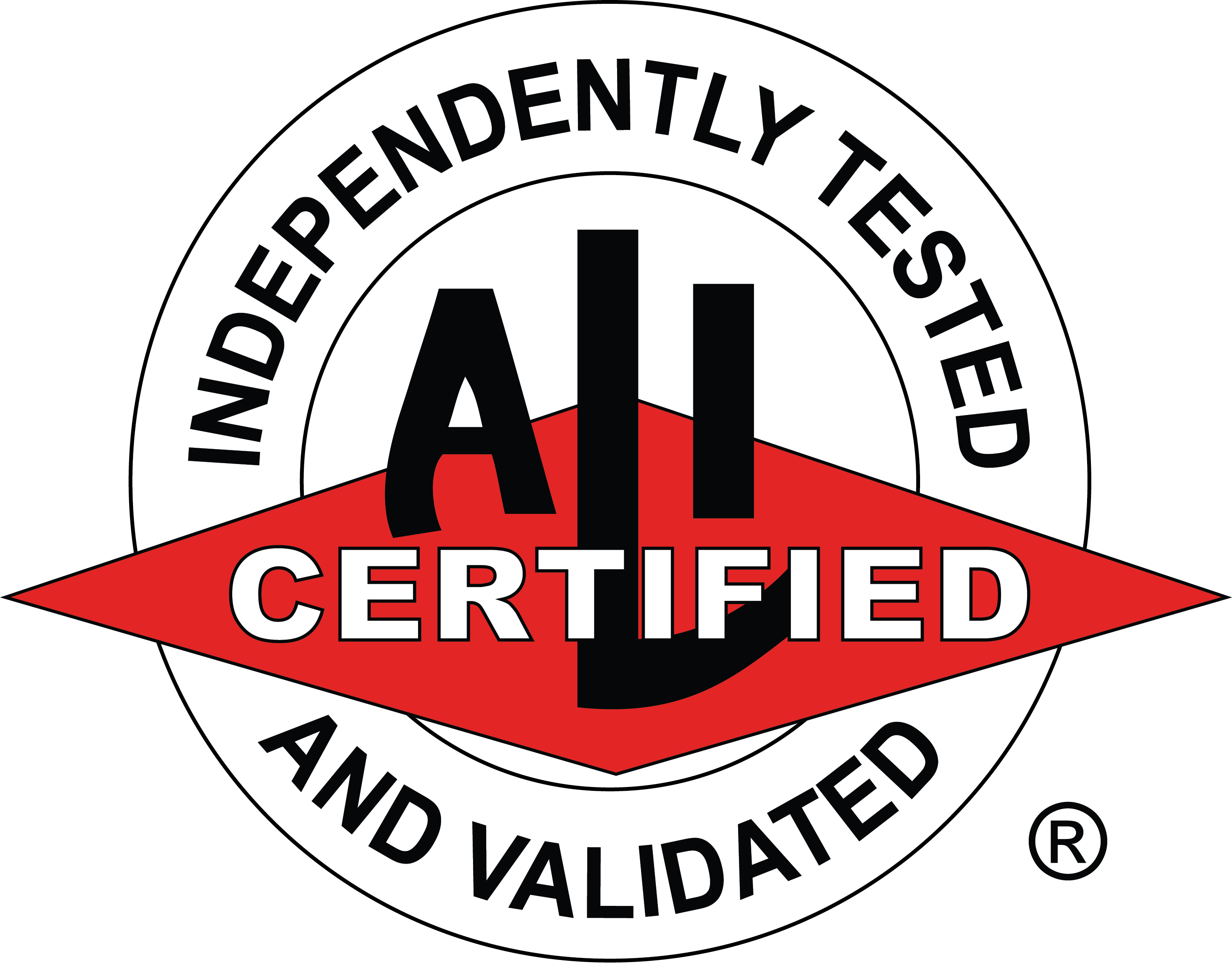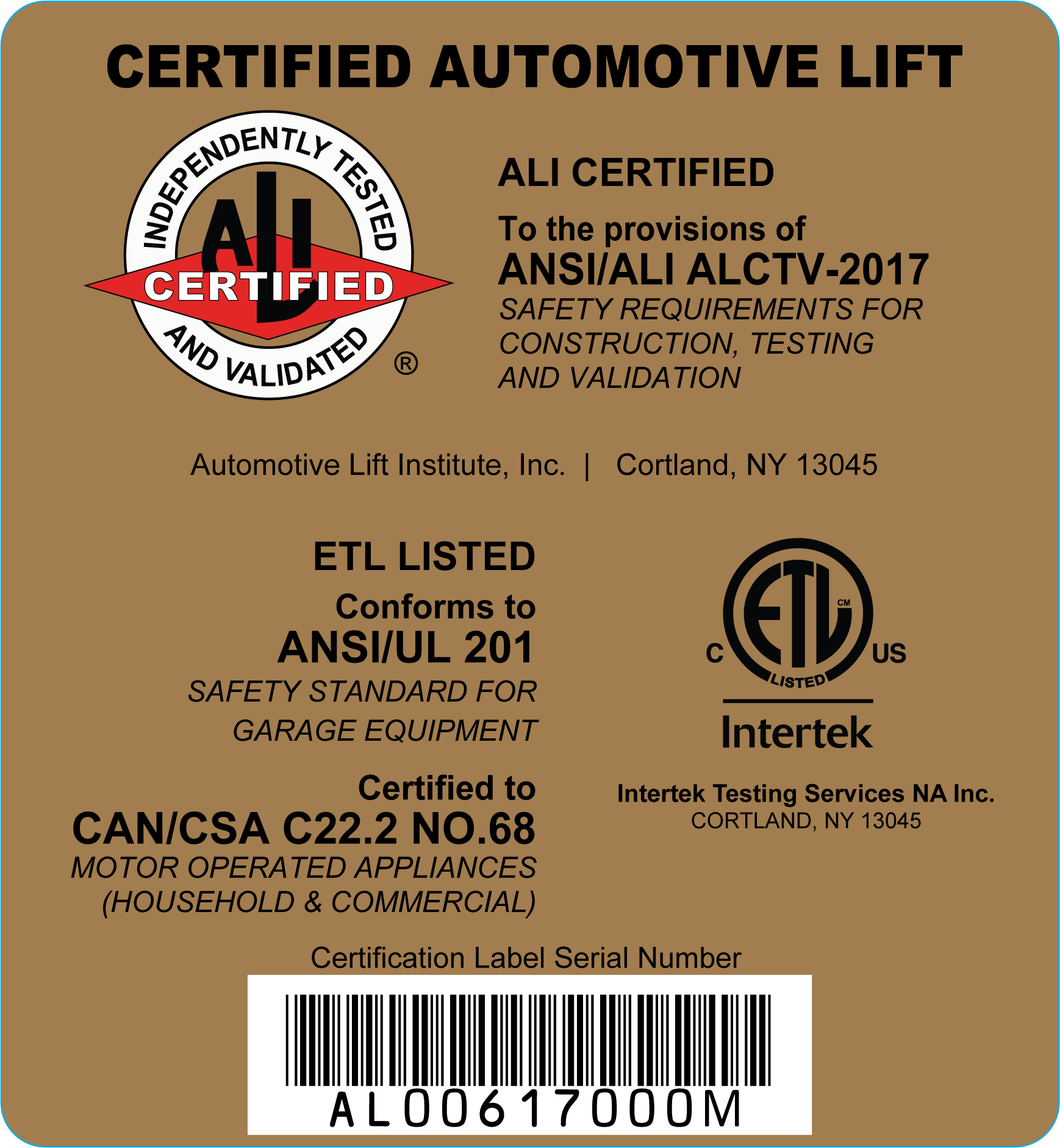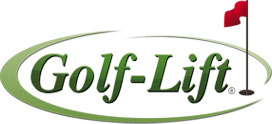Hot News Press Release - Golf-Lift's model GL-9 (GL9PYGRG) is now ALI/ETL "Certified" to the OSHA recognized ANSI/ALI ALCTV-2017 turf/auto lift standard
Fort Worth, Texas - Jun 02, 2018
Golf-Lift founder and President Derek Weaver, is proud to announce that the Golf-Lift model GL-9 (GL9PYGRG) turf equipment lift is now “Certified” to the rigid OSHA recognized ANSI/ALI ALCTV-2017 automotive/turf lift standard. To validate this claim, ALI requires the lift to be 3rd party tested by the nationally recognized ETL testing lab (Intertek) and engineers. The GL-9 passed this validation process and has earned the right to wear the ALI/ETL Gold Label.


“We are excited to not only have the GL-9 certified, but to finally have a lift standard that is inclusive to the lifting of turf equipment” said Derek Weaver. “Previous versions of the ANSI standard did not provide a means for the inclusion of turf equipment lifts. With the release of ANSI/ALI ALCTV-2017 in late 2017, we gained the much needed requirements to validate our lift for the Golf & Turf industry”. This important standard gives the Golf & Turf industry the tool they need to measure compliance with all lift manufacturers.
There’s a lot that goes into earning this label so we felt obligated to share the following article with you to gain a better understanding about what the certification means.
Behind the Gold Label
By Bart Patton
The vast majority of building code enforcement agencies now require all vehicle lifts installed within their jurisdictions to be certified.
WHAT DOES CERTIFICATION MEAN?
You may have noticed a gold label on the lifts you use, but do you know what that label represents and what it means to you?
In basic terms, a certified lift is one whose design has been tested and continuously inspected by a Nationally Recognized Testing Laboratory, or NRTL, as defined by the Occupational Safety and Health Administration (OSHA). The gold label certification mark on your lift, whether it is a heavy duty in-ground model used to service a fleet of buses or a modest four-post product built for the “weekend wrencher,” means the lift meets a consensus standard for safety.
The standard used by all prudent lift manufacturers to design and construct their lifts is ANSI/ALI ALCTV (Standard for Automotive Lifts – Safety Requirements for Construction, Testing, and Validation) current edition-2017. That’s a lot of letters, but each is an important part of the whole that ensures a certified lift meets minimum requirements.
Let’s break it down:
ANSI
ANSI stands for the American National Standards Institute, which oversees the issuance of more than 35,000 standards in the U.S. ANSI standards cover everything from abbreviation to zinc-plating and address safety, performance, materials, procedures and testing. ANSI also grants accreditation to certification programs like those offered by the Automotive Lift Institute (ALI) and administered by Intertek, which is an NRTL for hundreds of different safety standards.
ALI
ALI is a trade association of North American-based lift manufacturers. Its mission is to promote the safe design, construction, installation, inspection and use of vehicle lifts. In doing so, ALI aims to reduce lift-related accidents, damage and injuries. ALI developed the first commercial standard covering vehicle lifts in 1947. Today, ALI sponsors several national lift safety standards and offers third-party certification programs for vehicle lifts and lift inspectors.
ALCTV-2017
ALCTV is the standard for Automotive Lift Construction, Testing and Validation. The consensus body that oversees the standard is composed of lift manufacturers, users, testing laboratories, regulatory agencies and insurers. Any changes to the standard must be approved by the consensus body to ensure that no group’s agenda takes precedence. The number following “ALCTV” indicates the year the edition went into effect.
Why buy certified?
Even though you now know the details behind the certification label, you might still wonder why it is needed. With premiums on the rise, insurance companies and health and safety officials are increasingly requiring all products, including automotive lifts, to be certified for new construction installation or for continued use during insurance walk-throughs. Sadly, accidents do happen, the overwhelming majority related to operator misuse, lack of training or poor maintenance. The vast majority of building code enforcement agencies across the U.S. and Canada now require all vehicle lifts installed within their jurisdictions to be certified to reduce the potential for workplace injuries.
When you purchase a certified lift, you can rely not only on its structural integrity but also on the lift manufacturer’s many years of design expertise and the NRTL’s inspection experience. A manufacturer that makes certified lifts is required to have a quality system in place to ensure each model is made the same way time after time.
The manufacturer cannot simply pay the NRTL to apply a certification mark. Manufacturers must earn the label by proving the lift’s designers and welders are qualified, the manufacturing process is consistent, and by allowing NRTL inspectors to perform factory audits at least twice a year to ensure program procedures are being followed. All lifts certified to ANSI/ALI ALCTV are required to have ultimate material strengths at least equal to three times — and for some components, five times — the stress they will be subjected to under normal rated use. Don’t misunderstand this last point: it is never safe to load any vehicle lift beyond the manufacturer’s rated capacity.
A certified lift is the culmination of hundreds of hours spent designing a structure and testing it for normal and abnormal use to ensure its suitability for lifting and holding a vehicle safely. Don’t sell yourself short by skimping on a lift that is not certified.
Bart Patton is a senior project engineer at Intertek, a leading international provider of quality and safety services to a wide range of global and local industries. For more information, visit www.intertek.com.
Reprinted with Permission of Professional Tool and Equipment News
Derek Weaver Co., Inc. strongly supports the Certified Lift program and the safety, quality and industry support it provides.
Responsible Lift Manufacturers
In support of the Automotive Lift Institute (ALI) mission of promoting the safe design, construction, installation, inspection and use of vehicle lifts, members of ALI are required to third-party certify at least 75 percent of the lift models they sell. Additionally, ALI member manufacturers proudly provide a copy of ALI’s Lifting It Right safety manual, Vehicle Lifting Points Guide, ANSI/ALI ALOIM (current edition), safety tips card and warning label kits with each lift they distribute.



